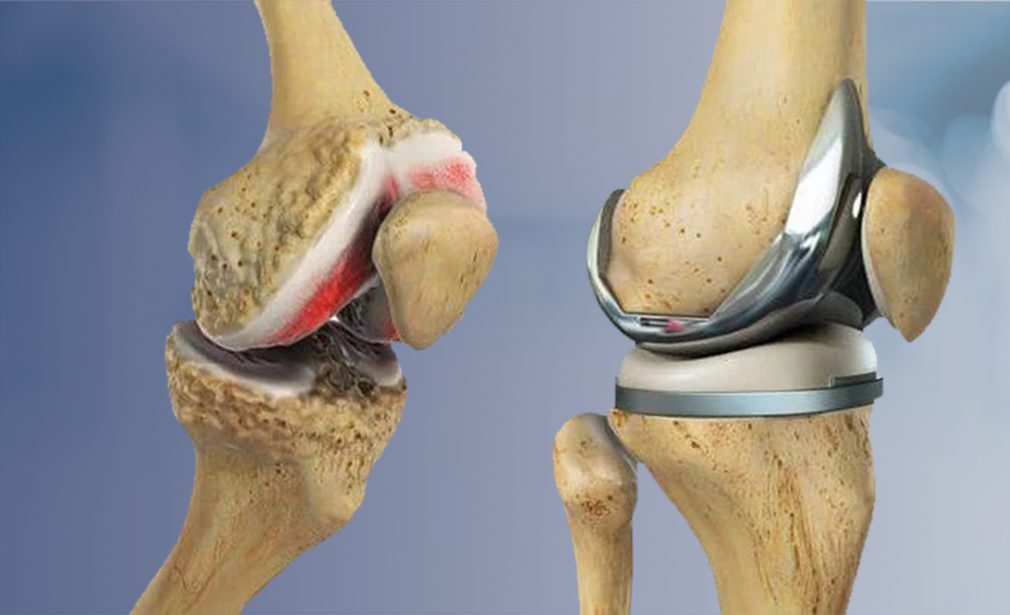Total Knee Replacement (TKR), also known as Total Knee Arthroplasty, is a surgical procedure designed to alleviate pain and restore function in patients with severe knee joint arthritis or significant knee injuries. During the surgery, damaged bone and cartilage are removed and replaced with artificial components made of metal and plastic.
Advancements in surgical techniques, such as robotic-assisted surgeries, have enhanced precision and potentially improved outcomes. Total Knee Replacement is a well-established procedure that offers substantial relief for individuals suffering from severe knee joint issues. Consulting with a qualified orthopedic surgeon can help determine if TKR is the appropriate course of action based on individual health status and lifestyle needs. The common symptoms of TKR are:
- Persistent pain that doesn't improve with rest or over-the-counter medications.
- Difficulty performing daily activities such as walking, climbing stairs, or getting in and out of chairs.
- A sensation of the knee giving way or buckling during movement.
- Ongoing swelling that doesn't subside with rest or medication.
- Challenges in performing everyday activities like bathing, shopping, or getting dressed.
- Failure to achieve relief from physical therapy, medications, or injections.
- Experiencing knee pain even when not bearing weight, including during sleep.
- Visible changes in knee alignment, such as bowing in or out.
We Use only US-FDA approved implants in our patients. These implants have been time-tested and certified across many reserches over the world.
Frequently asked questions
Total Knee Replacement (TKR) is a significant surgical procedure, and patients often have numerous questions regarding the process, recovery, and outcomes. Here are some common frequently asked questions (FAQs) about TKR:
Typically, patients stay in the hospital for one to three days after surgery, depending on their progress with physical therapy and overall recovery.
Knee replacement surgery typically lasts between 45 to 90 minutes, depending on the complexity of the procedure.
Implants are commonly made of cobalt chromium or titanium or titanium with gold ultra coat.
Physiotherapy helps strengthen the surgically sore muscles and keep you return back to your routine. Usually physiotherapy lasts for 2-3 weeks.
Most of your usual activities 2-3 weeks after surgery.
The lifespan of a knee replacement varies, but with proper care, it can last 15 to 20 years or more. Regular follow-up appointments with your surgeon are essential to monitor the condition of the implant.
It’s important to discuss any concerns or questions with your orthopedic surgeon to ensure you have a clear understanding of the procedure and recovery process.


